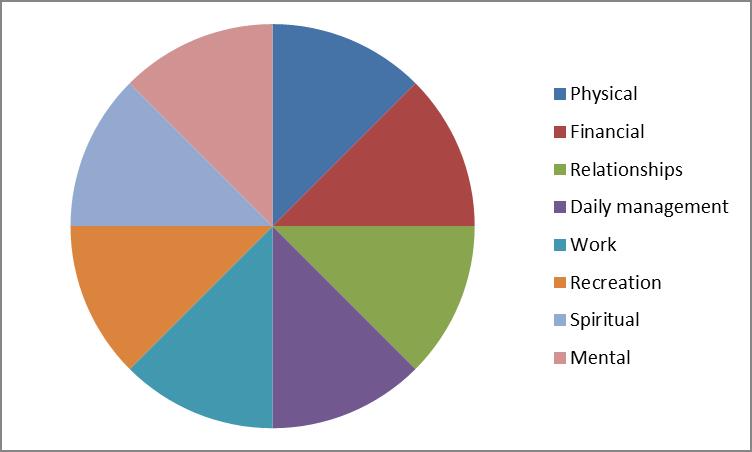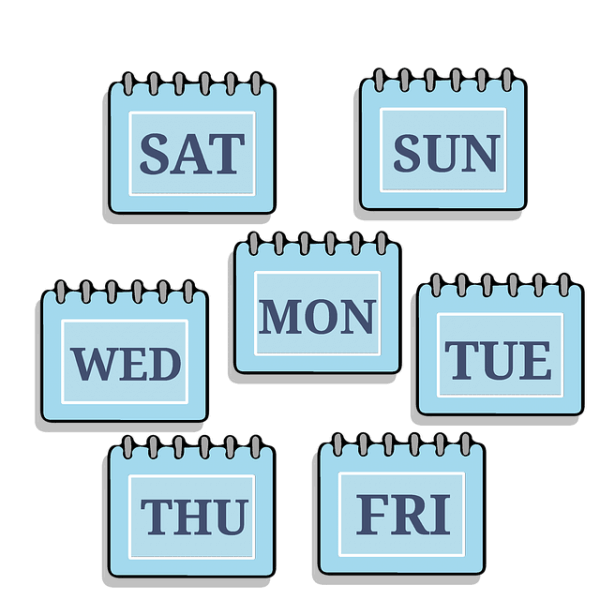Using daily management tools (or time management in retirement) is perhaps even more important now than when in full time employment. One of the greatest challenges of the newly retired is finding purpose and satisfaction in life.
During our years of employment, goals and objectives are often set externally by our employer. As employees we then take those goals and break them down into actions and we employ time management techniques in order to achieve those goals. It sometimes seems that work dominates our life and that other daily management is squeezed in around our work hours and objectives.
Upon retirement we find those structures fall away and unless we provide our own structure our days tend to pass by and we can lose a sense of purpose. Depression can follow which has some retirees feeling this is the worst time of their lives.
Even if you retire with a long bucket list (great idea by the way) you need to have an action plan, otherwise that list will remain just that; a list which you are not getting to. Those very same time management tools you used in your working career are just as important in retirement. There is one big difference though; in retirement you don’t need to fit your daily management in around the demands of others (although you may need to consider others in your plans – more on that later)
The Wheel of Life; a tool for time management in retirement
In a previous post I wrote about The Wheel of Life as an important tool to assess your satisfaction with life. The Wheel looks like this:

The Wheel looks like a deceptively simple tool but it is actually a ‘wheel within a wheel’ and a very powerful tool for time management in retirement.
Let’s look at that bucket list again, what’s on it? Let’s say you want to take a 3 month overseas trip. Great, that’s my kind of bucket list item, but from where I sit right now it seems a bit dreamlike rather than achievable. To get from dream to reality takes action (just like your action plans and goals in your working career) but this time entirely from your perspective. To do that you need to flesh out your dream and I recommend doing so with reference to each aspect of the wheel above.
Getting from dream to reality
If this was my bucket list item I would be making notes like this:
- Physical – I want to be in good physical condition for this trip, I want to be able to walk my way around cities and towns, I want to be able to easily handle my luggage …. I want to travel by plane and train and I want to stay in 4 star hotels….
- Financial – I will need $xx,xxx for my travels and I will travel on a daily budget of $xxx for the trip. I will finance my trip from my superannuation and I will manage my cash on the trip using ….
- Relationships – I will travel with my partner and I will take the opportunity to meet up with my friends around the world as I can. I will maintain contact with family and friends at home using email and Facebook
- Daily management – I will take time every day to upload my photos to a safe location and to check on my cash and other valuables.
- Work – I don’t plan to work during this trip other than to work at having a wonderful time.
- Recreation – every day will be all about recreation – I want to eat in Michelin star restaurants, drink French champagne (time to check the budget again) and visit the world’s greatest galleries and museums.
- Spiritual – I will take time every day to meditate and to practice mindfulness….
- Mental – I will take this opportunity to learn a new language because it is good for my brain (and it will make the travel much easier)

Breaking it down into daily actions
No doubt from the brief scenario above (in reality you would explicate your dream in far greater detail) you can begin to see the mini goals e.g. learn a new language. You might want to learn French, so now you begin to research French classes in your local area or online.
Looking at the list above, I would be putting items like this into my weekly plan and scheduling them as daily or at least regular actions:
- Walk 5 kilometres 3-4 times per week
- Do weights training to improve lifting and carrying ability
- Review budget against actual travel costs – research flights and accommodation
- Talk to my travel companion about locations and activities
- Update my technology skills
- Research galleries and museums
- Learn more about and practice mindfulness
- Daily practice of French using Duolingo
Suddenly I have structure in my days, and activities which move me towards a personally meaningful goal. I can nibble away at the actions that need to be completed to make my dream trip a reality. I can see the small steps I need to take and by taking some steps daily I maintain enthusiasm and excitement and a sense of possibility. No longer does my retirement feel unfocussed and meaningless. Every day I have a sense of purpose and tasks to complete that I really look forward to. Exercise (which in my case I find boring) now has purpose and holds personal resonance. Budgetting too – I see the value in travel and am prepared to sacrifice other expenditure so I can achieve this dream.
Of course you can work on more than one bucket list item at a time and yes the daily chores still have to get done, but a bit of inspiration and a lot of planning and action will certainly brighten up your retirement.
So tell me do you have tools you use to manage your time and maintain momentum? What tips would you add to ensure life is as positive and exciting as possible? Share your thoughts with us.
[mailerlite_form form_id=1]




